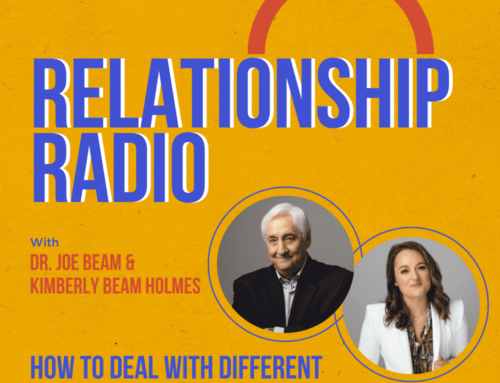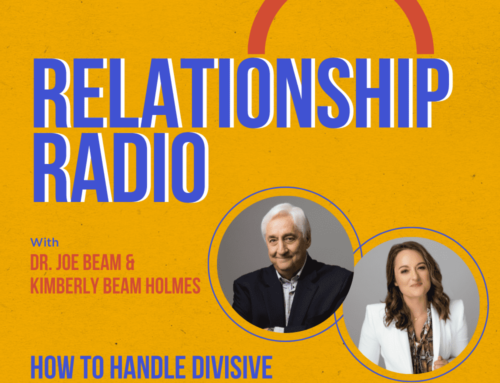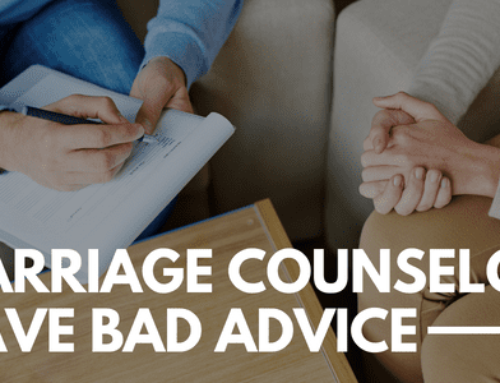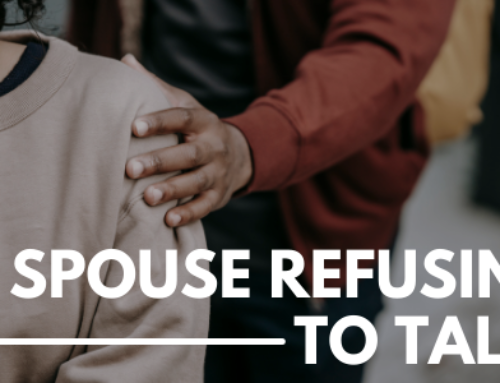Can a narcissist change? This is a question that so many people are asking in society today. I will give you the honest answer to this question, but first, let me introduce myself. My name is Kimberly Holmes. I’m the CEO of Marriage Helper. I’ve also been trained and started my Master’s in marriage and family therapy, have my Master’s in psychology, and am currently working on my Doctorate in psychology. And the only reason I’m telling you that is to show that I have some credibility in talking about narcissists and what we’ll get into with narcissistic personality disorder.
I also want to let you know that I’m going to be explaining and sharing how you can have a free call with a member of our team. It’s a free marriage strategy call; if you feel like your spouse is a narcissist, if you’re wondering, “can a narcissist change?” If you are struggling to see if there’s any hope for your relationship, there is. We have team members who will talk to you for free, hear your situation, and guide you to the next best steps to get your marriage to a better place.
Talking About Narcissism
Now, when we talk about narcissism, this is a word that is very pregnant in its definition. I mean that it has multiple definitions in ways that you could think about this word because it’s the same word that people use for lay terminology. And what I mean by that is the word “narcissist” is used in the sense that he’s an angry person or self-centered or a prideful person. However, the word is also used as a definition and in the title of an actual mental personality disorder, but the two words are very different.
It’s similar to the word bipolar. Bipolar is a clinical definition for a mood disorder with very high levels of mania and very low levels of depression. People either need medication, therapy, or a combination of the two to manage their lives on a day-to-day basis. Bipolar is an actual disorder, compared to when people say, “Oh, they’re so bipolar,” when they’re just referring to someone who’s moody. They’re talking about someone who one day is very excited, happy, outgoing, and the next day is super down in the dumps. That’s not actually diagnosed as bipolar mood disorder; it’s just a word used to describe how someone is. It’s the same with narcissism.
So yes, there is a narcissistic personality disorder, NPD for short, and it is in the DSM. The DSM is the diagnostic and statistical manual of mental disorders, which any trained and licensed therapist, psychologist, or counselor would use if they have the actual ability to diagnose someone. Not every therapist or counselor does; that’s a total side note.
What you need to know is that narcissism is an actual personality disorder.
However, it has either 9 or 13 qualifications for someone to be considered to have narcissistic personality disorder. And even then, it is less than 1% of the population. Way different than the way that culture and society are using the word narcissist today. I have another video that I’ve done in the past called “Married To A Narcissist”, which you can watch after this. It will give you even more information if you want to know all about that.
But the real question you’re asking here is, can a narcissist change? So, we’re going to take out that segment of people who are less than 1% of the population who truly struggle with narcissistic personality disorder and put them to the side, because most situations will not fall into that category.
We’re going to focus on the word narcissism.
When we label someone in society as a narcissist, that word has come to mean someone self-centered. I was reading a research study that further defined it as a self-centered person without relationality. So it’s someone who’s focusing on themselves and not on the majority of relationships in their life.
Here’s the other incredible thing about narcissism. Even narcissistic personality disorder almost didn’t even make it into the DSM-V because many psychologists and researchers said it’s common among many people. Here’s what’s common about it: We all have these areas in our life, or the tendency in our life, to be self-centered, but it’s to varying degrees.
Some people in life are way more self-centered and prideful than others, and some are less so. It can even vary depending on what stage of life you’re in or the situation you’re experiencing. You might become more self-centered if you’re experiencing issues at work or a lot of stress in your life. You may look more inward to try and protect yourself versus if you are in a great space in your life where everything’s going well, and you tend to have more availability and ability to focus on other people and not be self-centered.
So when we’re talking about the question, can a narcissist change?
The answer to that question is yes. Because here’s the real question you should ask yourself: Can you change? Do you believe that if you were in a situation or period in your life where you were focusing more on yourself and being more self-centered, would you want other people to believe that you could change? I think all of us would say yes to that.
Suppose I’m going through a hard time in my life where work is stressful. The kids are demanding, my marriage isn’t going so well, and because I am trying to protect myself mentally, I become more self-centered and begin to do things like focusing on investing more in myself, having more time to myself, and doing things that make me happy. I’m not saying that it’s the right thing to do, but because of that stress, if it creates more of a tendency in myself to turn inward, would I want the people in my life to believe I could change?
Here’s the thing…
There’s another psychological principle here called the self-fulfilling prophecy. And it doesn’t just have to do with how I think about myself. But if my husband were to see me in that kind of situation, where life is stressful, and I’m being selfish because of the crazy things happening and decided to label me as a narcissist, how does that help me? And in fact, it can make it worse because then he’s labeling me as something, treating me like I’m broken or flawed, which is only going to make me feel more isolated, more stressed out, and then make me wonder, is it true? When in fact, it’s probably not. 99% of the time, it’s not true.
Here is what we need to do instead.
Realize that when people are acting self-centered, doing things that are hurtful to others because they’re not thinking about how their actions affect other people, realize this person is coming from a place of pain. It may be coming from how a parent treated them, how their mother was not there for them, or perhaps because of a significant first romantic relationship where they were hurt and left and felt abandoned because of it. They have something in their past that has led them to feel like they have to protect themselves, put walls up, and focus on themselves because they can’t trust other people. Then it led them to focus more on turning inwards, feeling like they couldn’t trust other people.
Or maybe it’s because of what is currently going on in that person’s life that adds to this stress level and forces that person because of their defense mechanisms and how they handle stress by turning inward. But that doesn’t make them a narcissist. It makes them a broken human who needs someone to show them empathy and compassion. That’s what it is.
Now, can a narcissist change?
Can a person come out of that time in their life where they feel like they have to be self-centered because they can’t trust anyone or depend on anyone else? And the answer is yes. But here’s what has to happen. The person going through that hard time, the person that you’re labeling as the narcissist, needs to see that you love them, that you care for them, and that you’re going to be there for them.
Now I know that the next question that will come up in people’s minds is, “But where do I draw a boundary? How do I protect myself when they are just blatantly doing things that hurt me when they are spending all of our money or never coming home to be with the kids? Or they are having multiple affairs or just focused on what they want and what they need and acting like this narcissist?” When they’re acting very self-centered, you should have boundaries. You should protect yourself and protect your children, you should protect your finances as much as you can, but you can do all those things with love and compassion. All those things can be done with empathy.
You may be thinking, how in the world do I do that?
That is more of an art than a science and not something that I can easily answer for you in this quick article. But here is the benefit of you booking that free marriage strategy session. When you speak with one of our client relations team members and share your situation and ask, “can a narcissist change?”, our team will then point you to the best resource available for you, whatever that might be. To help you and your spouse get over this struggle, this obstacle that you’re in, that we don’t want you to stay in. But also to help you learn how you can implement boundaries and do that without being disrespectful, unloving, pushing your spouse further away, or making them feel even more dejected and alone than they already feel right now.
One thing that makes incredibly successful and satisfying marriages that stay committed long-term and are happier and stronger than ever, is the ability to empathize.
The ability to see your spouse’s situation and not judge them for the actions they’re taking, not condemn them for the things they’re doing, but not approve of all of these things either. Instead, love them through it. It is possible to not agree with something that your husband or wife is doing and love them simultaneously. Those two things don’t have to contradict each other. This is what we get wrong in society all the time. We feel like if someone is doing something that we don’t approve of, we need to stop talking to them, disassociate with them, or judge or label them.
That is only leading to the destruction of relationships. So, my encouragement to you is when people are struggling with these feelings of self-centeredness and selfishness, most of the time, it is not because this is an evil person. It’s coming from the fact that this is a broken person looking for connection and doesn’t know how to ask for it. Someone who is looking for compassion and doesn’t know how to receive it. And the only thing that is going to help them get out of this and to become a different person is for someone to treat them like they’re lovable. To not label them, to not judge them, but to love them through it.
We can teach you how to do that at Marriage Helper. Click this link and schedule that free call with someone on our team. We will listen to your situation. We will point you to the best resource that can help you save your marriage and make it stronger than ever before.
For more Marriage Helper videos, visit our YouTube channel here!






